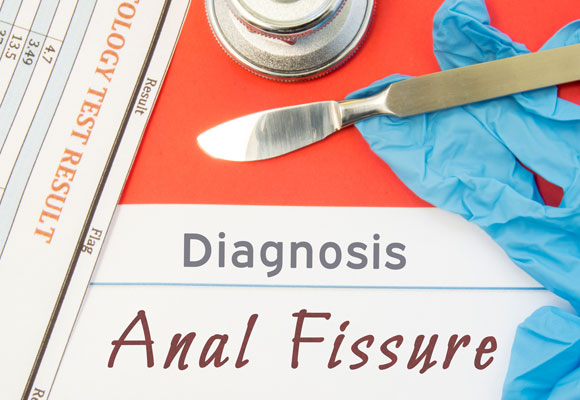Welcome to the RS Surgical blog. Today, we’re addressing a common but often misunderstood condition: anal fissures. These small tears in the lining of the anus can cause significant discomfort and pain, especially during bowel movements. Fortunately, with the right preventive measures, it’s possible to reduce the likelihood of developing anal fissures. This comprehensive guide will walk you through everything you need to know about anal fissure prevention.
Understanding Anal Fissures
An anal fissure is a small cut or tear in the mucosa that lines the anus, which can cause pain and bleeding during bowel movements. Fissures are commonly caused by passing large or hard stools but can also result from chronic diarrhea, childbirth, or inflammatory diseases affecting the anal area.
Symptoms of Anal Fissures
The primary symptoms include:
- Sharp pain during and after bowel movements
- Bleeding, noticeable as bright red blood on the stool or toilet paper
- A visible tear around the anus upon examination
Why Prevention is Key
Preventing anal fissures is crucial because, once developed, they can create a cycle of pain that makes bowel movements distressing. The pain can lead to anal sphincter spasms, which increase the likelihood of additional tears.
Dietary Recommendations for Prevention
One of the most effective strategies for preventing anal fissures is maintaining a healthy diet that promotes soft, easy-to-pass stools.
Increase Fiber Intake
A high-fiber diet can significantly improve bowel health and prevent constipation, one of the leading causes of anal fissures. Adults should aim for 25 to 30 grams of fiber per day. High-fiber foods include:
- Fruits such as berries, apples, and pears
- Vegetables such as broccoli, carrots, and leafy greens
- Whole grains like oats, whole wheat, and brown rice
- Legumes including beans, lentils, and chickpeas
Stay Hydrated
Drinking plenty of fluids is also vital. Water helps to soften the stool, making it easier to pass and reducing strain during bowel movements. Aim for at least eight 8-ounce glasses of water per day.
Consider Fiber Supplements
If it’s challenging to achieve fiber goals through diet alone, consider a fiber supplement. These can help maintain regularity without the need to radically change your eating habits.
Lifestyle Modifications
In addition to dietary changes, certain lifestyle modifications can help prevent anal fissures.
Regular Exercise
Physical activity helps keep the digestive system active and efficient, reducing the likelihood of constipation. Even light exercise, such as walking for 30 minutes a day, can make a significant difference.
Proper Bathroom Habits
How you manage your time in the bathroom can also impact your risk for anal fissures. Here are some tips:
- Do not strain or rush the process. Allow your body to naturally pass stools without forcing them.
- Use the bathroom as soon as you feel the urge. Holding in stool can lead to harder, drier stools that are more difficult to pass.
- Consider using a squatting position or a footstool to mimic a squatting position for easier defecation.
Use Gentle Cleansing Techniques
After bowel movements, gentle cleaning is crucial. Harsh wiping can irritate the anal area and contribute to fissures. Use unscented wipes or wash with water, and pat the area dry instead of rubbing.
Managing Stress
Chronic stress can also contribute to digestive problems, including constipation. Managing stress through techniques such as yoga, meditation, or deep-breathing exercises can indirectly help prevent anal fissures.
When to See a Doctor
While preventive measures are effective, it’s important to know when to seek medical advice. If you experience persistent pain, bleeding, or any signs of infection (such as fever or pus), consult with a healthcare provider. These symptoms can indicate complications or other underlying conditions that may require medical treatment.
Advanced Preventive and Treatment Options
At RS Surgical, we offer a range of treatments and preventive measures for anal fissures that go beyond home care. These include:
Topical Medications
These can help relieve pain and relax the sphincter muscle, reducing the risk of further tearing.
Botox Injections
For chronic fissures not responding to standard treatments, Botox injections can temporarily paralyze the sphincter muscle, preventing spasms and allowing the fissure to heal.
Surgical Options
In severe cases, surgical options such as lateral internal sphincterotomy can be considered to help permanently reduce sphincter spasm and facilitate healing.
Empowering Yourself with Knowledge
Understanding the causes and preventive measures for anal fissures can empower you to take charge of your digestive health. By implementing dietary changes, adjusting your lifestyle, and seeking medical advice when necessary, you can significantly reduce your risk of developing this painful condition.
Your Partners in Health
At RS Surgical, we are dedicated to providing comprehensive care and preventive strategies to help our patients lead healthier, more comfortable lives. If you’re dealing with recurring digestive issues or just want to learn more about maintaining optimal digestive health, we’re here to help.
Visit our website to learn more about our services or contact us directly to schedule a consultation. Let us help you achieve and maintain your best health with the most advanced medical care available today.


